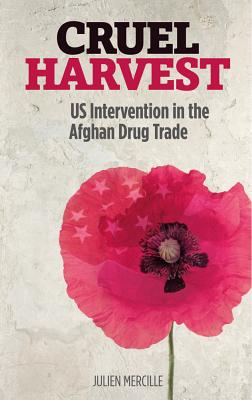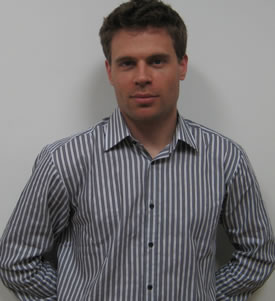Introducing Julien Mercille
 Dr Mercille, who holds the Canadian nationality, is Lecturer at the School of Geography, Planning & Environmental Policy of the University College Dublin. Before receiving his PhD in geography from UCLA (Los Angeles, USA) in 2007, he obtained an MA in geography from the University of Kentucky (USA) and a BA in International Development Studies from McGill University (Montreal, Canada).
Dr Mercille, who holds the Canadian nationality, is Lecturer at the School of Geography, Planning & Environmental Policy of the University College Dublin. Before receiving his PhD in geography from UCLA (Los Angeles, USA) in 2007, he obtained an MA in geography from the University of Kentucky (USA) and a BA in International Development Studies from McGill University (Montreal, Canada).
His new book “Cruel Harvest. US Intervention in the Afghan Drug Trade” is due later this year.
Geopolitical Passport
My relationship with geopolitics
At what age did you discover geopolitics and what attracted you to it?
 Relatively late because my academic background was not in geopolitics until I got to the PhD level. This is approximately when I started reading formally on the subject.
Relatively late because my academic background was not in geopolitics until I got to the PhD level. This is approximately when I started reading formally on the subject.
Which geopolitical topics have your focus and why did you choose especially these?
US foreign policy has been my focus for the last few years, in particular 9-11, terrorism, the wars in Afghanistan and Iraq, and the Iranian nuclear question.
I chose those topics because at the time and still today they were/are important internationally and occupy an important place on the news.
What do you consider your most important contribution to geopolitics?
I would say it has been to bring a critical/radical political economy perspective to it. Over the last few years, the trend has been more towards cultural and discursive approaches, and my work has sought to present a more political economic take.
Also, my book “Cruel Harvest” on Afghanistan, drugs and the United States makes an important contribution to our understanding of ‘wars on drugs’ and the relationship between drugs and US foreign policy.
The book argues that the United States (and the West in general) shares a good part of responsibility for the expansion of the drug trade in Afghanistan, for example by supporting some of the biggest drug traffickers in the country.
Your geopolitical preferences
What is your favourite definition of geopolitics?
That’s a difficult one: definitions are never perfect and always leave something out, etc.!
Which geopolitical scientist do you admire the most?
Within the formal field of geopolitics, I like John Agnew’s work because it is concerned with the ‘big questions’ and because it is multi-disciplinary in approach.
Within the field of geopolitics in a broader sense, I like David Harvey’s work, which brings a good radical political economy perspective to the subject matter.
I also read a lot of authors who would not belong to the discipline of geography or geopolitics formally, but address the same substantive issues, people like Chalmers Johnson, Robert Fisk and others.
What is your favourite geopolitical book?
As mentioned above, I like John Agnew’s work in general, maybe his “Mastering Space” is the one I liked the most; Robert Fisk’s books are good too.
What is your favourite geopolitical website?
Apart from this one, I read a lot of news online, including standard newspapers from the Guardian to the Wall Street Journal, and ‘alternative news’ websites like Juan Cole’s Informed Comment, Truthout and Inter Press Service.
The geopolitical future
In what direction(s) will geopolitical science be heading the coming decades?

I think it’s going to move away slightly from discourse and cultural analysis as it went pretty far in that direction over the last years. Hopefully it will move more toward political economy, because it explains so much of the world we live in.
Which geopolitical subject has been too little in the spotlight and needs further research?
The global financial and economic crisis.
What will be the largest geopolitical challenge for the world in the 21st century?
Reducing inequality and strengthening social movements such as the Occupy movement and the Arab Spring.
